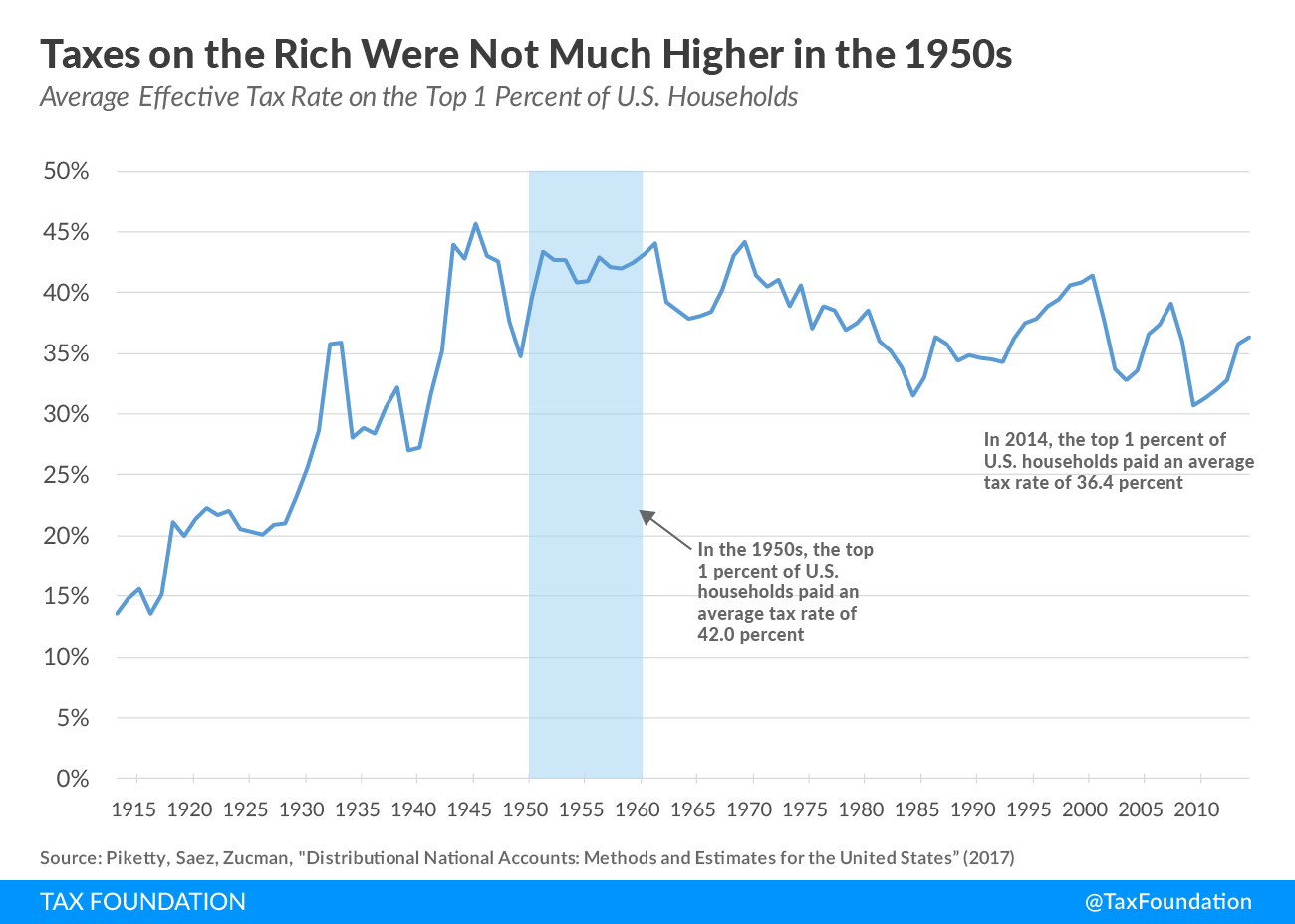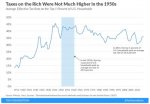- Joined
- Jul 13, 2012
- Messages
- 47,695
- Reaction score
- 10,467
- Gender
- Male
- Political Leaning
- Other
Well, unless you're an old guy like me, probably not, but one thing you need to understand about that era in which we were able to build the interstate highway system and help rebuild Europe without incurring a debt we can't pay is the way the tax system has changed since then:
View attachment 67266145
When Democrats talk about the rich paying more, consider a little bit of history. Check it out here
Effective Tax Rates are the result of the deductions allowed under law. Tax rates all by themselves leave out most of the laws regarding taxation of income.
I suppose a half a truth is better than none.
Taxes on the Rich Were Not Much Higher in the 1950s | Tax Foundation
<snip>
The data shows that, between 1950 and 1959, the top 1 percent of taxpayers paid an average of 42.0 percent of their income in federal, state, and local taxes.
Since then, the average effective tax rate of the top 1 percent has declined slightly overall.
In 2014, the top 1 percent of taxpayers paid an average tax rate of 36.4 percent.
<snip>
The graph below shows the average tax rate that the top 1 percent of Americans have faced over the last century. The data comes from a recent paper by Thomas Piketty, Emmanuel Saez, and Gabriel Zucman that attempts to account for all federal, state, and local taxes paid by different groups of Americans over the last 100 years.[2]

<snip>

